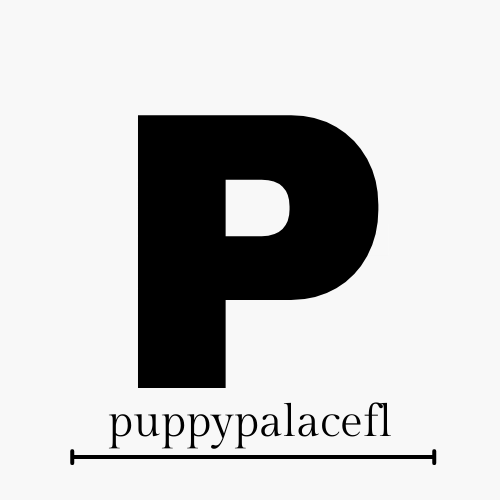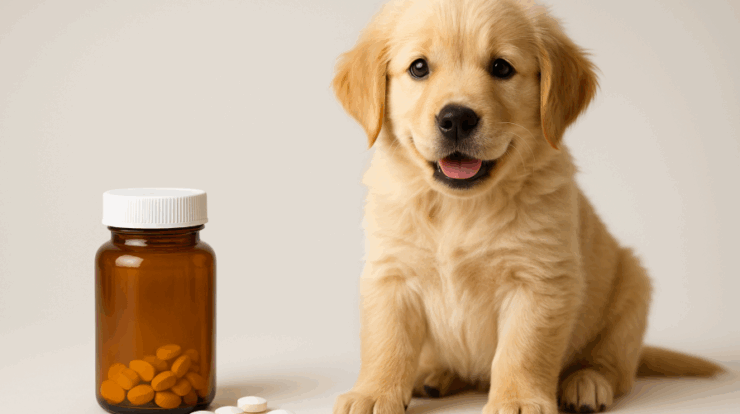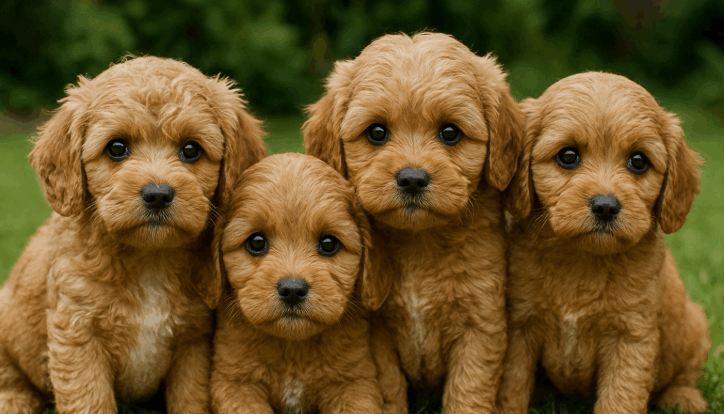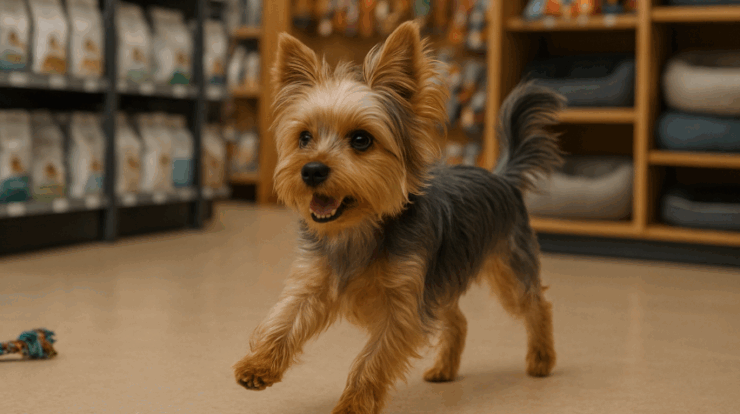Toy poodle dry food puppy sets the stage for this enthralling narrative, offering readers a glimpse into a story that is rich in detail with a comprehensive guide on feeding toy poodle puppies.
From types of dry food to nutritional requirements, feeding schedules, and common mistakes to avoid, this guide covers all aspects of ensuring your toy poodle puppy’s health and well-being.
Types of Toy Poodle Dry Food for Puppies
When it comes to choosing dry food for toy poodle puppies, there are various types available that cater to their specific nutritional needs. Each type of dry food offers different benefits for the overall health and well-being of toy poodle puppies.
Grain-Free Dry Food
Grain-free dry food for toy poodle puppies is formulated without grains such as wheat, corn, or soy. This type of dry food is beneficial for puppies with food sensitivities or allergies to grains. It usually contains high-quality protein sources like poultry or fish and is rich in essential nutrients for growth and development.
Small Breed Puppy Formula
Small breed puppy formula dry food is specifically designed to meet the needs of toy poodle puppies. These formulas have smaller kibble sizes to suit the tiny mouths of toy poodles and are packed with nutrients like DHA for brain development, calcium for bone growth, and antioxidants for a strong immune system.
High-Protein Dry Food
High-protein dry food is ideal for toy poodle puppies with high energy levels or those that are more active. This type of dry food contains a higher percentage of protein, which helps in muscle development and maintenance. It also provides essential amino acids for overall health and vitality.
Limited Ingredient Dry Food
Limited ingredient dry food is beneficial for toy poodle puppies with food sensitivities or digestive issues. This type of dry food contains a simplified list of ingredients, making it easier to identify and avoid potential allergens. It is usually made with a single protein source and limited carbohydrates for easy digestion.
Senior Toy Poodle Dry Food
Senior toy poodle dry food is formulated for older toy poodles that may have specific dietary requirements. These formulas typically contain reduced levels of fat to help maintain a healthy weight, along with added joint support ingredients to promote mobility in aging dogs.
Ingredients to Look for in Toy Poodle Dry Food
When selecting dry food for toy poodle puppies, it is crucial to consider the ingredients that will contribute to their overall health and growth. High-quality ingredients play a significant role in ensuring that your puppy receives the necessary nutrients for development.
Key Ingredients for Toy Poodle Puppies:
- Protein: Look for sources of high-quality animal protein such as chicken, turkey, or lamb. Protein is essential for muscle development and overall growth.
- Fruits and Vegetables: Ingredients like sweet potatoes, peas, and carrots provide essential vitamins, minerals, and antioxidants to support your puppy’s immune system.
- Omega-3 Fatty Acids: Ingredients like salmon oil or flaxseed are important for maintaining healthy skin and a shiny coat in toy poodle puppies.
- Whole Grains: Opt for whole grains like brown rice or oatmeal as a source of carbohydrates for energy and fiber for digestion.
Importance of High-Quality Ingredients:, Toy poodle dry food puppy
High-quality ingredients in toy poodle dry food are crucial for promoting healthy growth in puppies. These ingredients provide the necessary nutrients for strong bones, muscle development, and overall well-being. Additionally, they support the immune system and help maintain a shiny coat and healthy skin.
Common Ingredients in Toy Poodle Dry Food:
| Common Ingredients | Benefits |
|---|---|
| Chicken | High-quality protein source for muscle development |
| Sweet Potatoes | Rich in vitamins and antioxidants for immune support |
| Salmon Oil | Provides omega-3 fatty acids for healthy skin and coat |
| Brown Rice | Source of carbohydrates and fiber for energy and digestion |
Nutritional Requirements for Toy Poodle Puppies

Toy poodle puppies have specific nutritional needs to support their growth and development. It is essential to provide them with a balanced diet that meets their requirements for protein, fat, carbohydrates, vitamins, and minerals.
Ideal Balance of Protein, Fat, and Carbohydrates
Toy poodle puppies require a diet that is rich in high-quality protein to support their growth and muscle development. Look for dry food that contains animal-based proteins like chicken, turkey, or fish. Additionally, a moderate amount of healthy fats is essential for energy and the absorption of fat-soluble vitamins. Carbohydrates should come from whole grains and vegetables to provide a source of energy and fiber for digestion.
Role of Vitamins and Minerals
Vitamins and minerals play a crucial role in the development of toy poodle puppies. Vitamin A is essential for vision and immune function, while vitamin D helps with calcium absorption for strong bones. Minerals like calcium, phosphorus, and iron are also vital for bone growth, blood health, and overall well-being. Make sure the dry food you choose for your toy poodle puppy contains a balanced blend of vitamins and minerals to support their overall health and development.
Feeding Schedule for Toy Poodle Puppies
When it comes to feeding toy poodle puppies, it is essential to establish a consistent schedule to ensure they receive the right amount of nutrition to support their growth and development.
Recommended Feeding Schedule
To meet the nutritional needs of toy poodle puppies, it is recommended to feed them 3-4 small meals a day. This helps prevent issues like hypoglycemia, which toy poodles are prone to due to their small size and high metabolism.
- Breakfast: 7:00 AM
- Morning Snack: 10:00 AM
- Lunch: 1:00 PM
- Afternoon Snack: 4:00 PM
Portion Sizes and Frequency
Toy poodle puppies should be fed according to their weight and age. A general guideline is to feed them about 1/4 to 1/2 cup of dry food per day, divided into the recommended 3-4 meals. Adjust portion sizes based on their activity level and growth rate.
It is important not to overfeed toy poodle puppies as obesity can lead to various health issues.
Factors Influencing Feeding Schedule
Factors such as age, size, activity level, and metabolism can influence the feeding schedule of toy poodle puppies. It is crucial to monitor their weight and adjust their feeding schedule accordingly to ensure they are getting the right amount of nutrients without overfeeding.
Transitioning to Dry Food for Toy Poodle Puppies
Transitioning a toy poodle puppy from wet food to dry food is a crucial process that should be done gradually to ensure the puppy’s digestive health is not compromised. Abrupt changes in diet can lead to gastrointestinal upset and discomfort for your furry friend.
Importance of a Gradual Transition
It is important to gradually transition your toy poodle puppy from wet food to dry food to allow their digestive system to adapt to the new diet. This slow change helps prevent stomach upset, diarrhea, and other digestive issues that can arise from a sudden switch.
- Start by mixing a small amount of dry food with the wet food your puppy is currently eating.
- Gradually increase the ratio of dry food to wet food over the course of a week or two.
- Monitor your puppy’s stool and overall well-being during the transition period.
Tips for a Smooth Transition
Here are some tips to help make the transition from wet food to dry food smooth and successful for your toy poodle puppy:
- Choose a high-quality dry food that is specifically formulated for toy poodle puppies to ensure they receive the necessary nutrients.
- Soak the dry food in warm water or low-sodium broth to make it more palatable for your puppy.
- Feed your puppy at regular times each day to establish a routine and aid in the transition process.
- Avoid free-feeding to monitor your puppy’s intake and ensure they are eating enough during the transition.
- Consult with your veterinarian if you have any concerns or questions about transitioning your toy poodle puppy to dry food.
Common Mistakes to Avoid When Feeding Toy Poodle Puppies Dry Food: Toy Poodle Dry Food Puppy

Feeding toy poodle puppies dry food is essential for their growth and development, but there are common mistakes that pet owners should avoid to ensure the health and well-being of their furry friends.
Overfeeding or Underfeeding
One of the most common mistakes pet owners make is not measuring the correct portion of dry food for toy poodle puppies. Overfeeding can lead to obesity and other health issues, while underfeeding can result in nutritional deficiencies and stunted growth.
Inadequate Hydration
Another mistake is not providing enough fresh water alongside dry food. Toy poodle puppies need to stay hydrated, especially when consuming dry food, to prevent dehydration and urinary tract problems.
Ignoring Food Allergies
Some pet owners overlook the importance of checking for food allergies in toy poodle puppies. Feeding them dry food that contains allergens can lead to digestive issues, skin problems, and discomfort.
Not Monitoring Weight and Body Condition
Failing to monitor the weight and body condition of toy poodle puppies can result in overfeeding or underfeeding. It’s crucial to adjust their food portions accordingly to ensure they maintain a healthy weight and body condition.
Switching Foods Abruptly
Sudden changes in dry food brands or formulas can upset the sensitive stomach of toy poodle puppies. Gradually transitioning to a new dry food over a period of time can help prevent digestive upset and ensure they adjust well to the new diet.
Best Practices for Storing Toy Poodle Dry Food
Properly storing dry food for toy poodle puppies is essential to maintain its freshness and nutritional value. It helps in preventing spoilage and ensures that your puppy gets the best out of their meals.
Storing in Airtight Containers
It is crucial to store toy poodle dry food in airtight containers to prevent exposure to moisture, air, and pests. This helps in preserving the flavor, texture, and overall quality of the food for a longer period.
Away from Sunlight
Keep the dry food containers away from direct sunlight or any sources of heat. Sunlight exposure can lead to the degradation of essential nutrients in the food and reduce its shelf life. Store the containers in a cool, dry place to maintain the freshness of the food.
Shelf Life and Quality Assurance
Dry food for toy poodle puppies typically comes with an expiration date mentioned on the packaging. It is important to adhere to this date and not use the food beyond it. Additionally, regularly check the condition of the food for any signs of spoilage, such as mold or unusual odor, to ensure its quality over time.
Supplementing Toy Poodle Puppies’ Diet with Dry Food
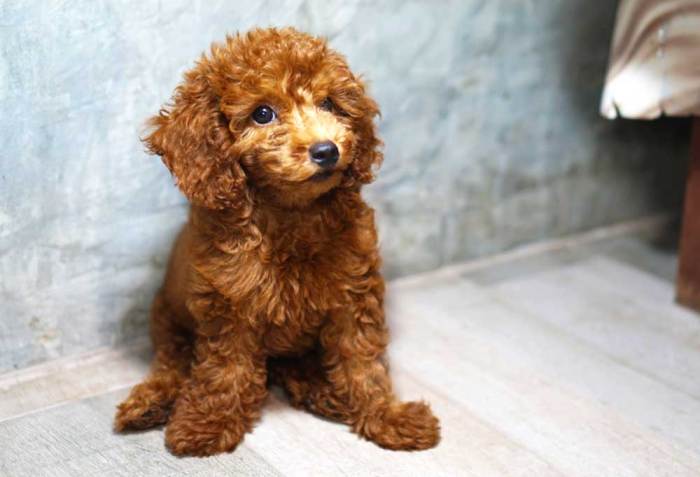
Adding supplements to a toy poodle puppy’s diet can be beneficial in enhancing their overall nutrition. These supplements can provide additional vitamins, minerals, and nutrients that may be lacking in their regular dry food.
Benefits of Supplementing Toy Poodle Puppies’ Diet
- Improving skin and coat health
- Supporting healthy growth and development
- Boosting immune system function
Recommended Supplements for Toy Poodle Puppies
- Omega-3 Fatty Acids: Helps promote a healthy coat and skin.
- Probiotics: Aids in digestion and supports gut health.
- Calcium: Essential for bone development in growing puppies.
Special Considerations for Toy Poodle Puppies with Dietary Restrictions
When selecting dry food for toy poodle puppies with specific dietary restrictions, it is essential to consider their unique needs and sensitivities. Common dietary restrictions in toy poodle puppies can include food allergies, sensitivities to certain ingredients, or digestive issues. To ensure a balanced diet for toy poodle puppies with dietary restrictions, it is crucial to choose high-quality, specialized dry food that meets their nutritional requirements while avoiding ingredients that may trigger adverse reactions.
Choosing Suitable Alternatives for Common Dietary Restrictions
- For toy poodle puppies with food allergies, opt for dry food formulas that are free from common allergens such as wheat, soy, corn, dairy, and artificial additives. Look for limited ingredient recipes with novel protein sources like duck, venison, or salmon.
- If your toy poodle puppy has sensitivities to grains, consider grain-free dry food options that are rich in easily digestible carbohydrates like sweet potatoes, peas, or lentils.
- In cases of digestive issues, choose dry food with added probiotics and prebiotics to support healthy digestion. Look for formulas with easily digestible proteins and fiber to promote optimal gut health.
Ensuring a Balanced Diet for Toy Poodle Puppies with Unique Dietary Needs
Consult with your veterinarian to determine the specific dietary restrictions of your toy poodle puppy and receive personalized recommendations for suitable dry food options.
- Monitor your puppy’s response to the new dry food formula and observe for any signs of allergic reactions, digestive upset, or intolerance.
- Rotate between different protein sources and formulas to prevent the development of new sensitivities and provide a varied diet for optimal nutrition.
- Avoid feeding your toy poodle puppy table scraps or human food that may contain ingredients harmful to dogs with dietary restrictions.
Wrap-Up
In conclusion, understanding the nuances of feeding toy poodle puppies dry food is crucial for their growth and development. By following the recommendations in this guide, you can ensure that your furry friend receives the best nutrition possible.
